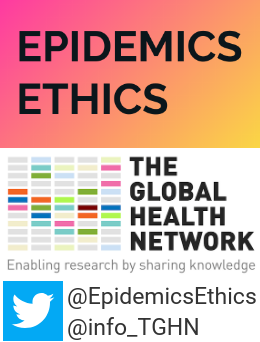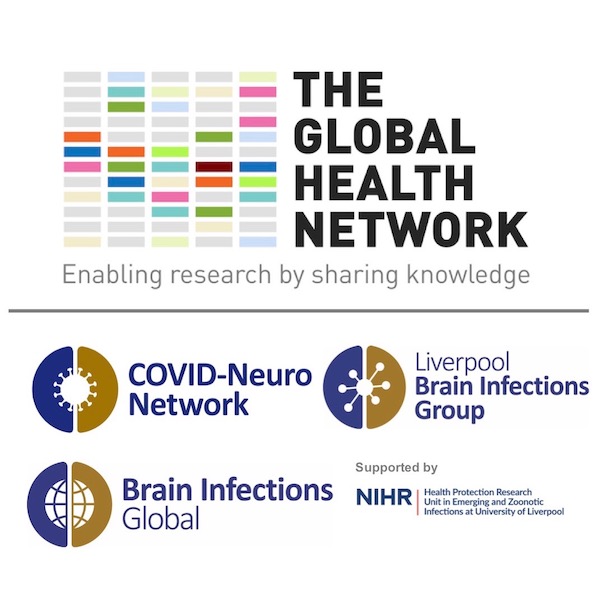
Upcoming Seminar: Immunity Passports: Inevitable? Ethical?
Assuming that recovery from COVID-19 brings a measure of immunity, some have proposed that the detection of antibodies to the SARS-CoV-2 virus could serve as the basis for an ‘immunity passport’ that would enable individuals to travel or to return to work. While health officials and scientists continue to review the evidence on antibody responses to SARS-CoV-2 infection, critical ethical questions related to stigma, health inequities, and the evidential basis for the use of immunity passports must be addressed. This online seminar, hosted by the Public Health Emergency Preparedness and Response Ethics Network (PHEPREN), will bring together leading experts to discuss these important questions.
Chair: Professor Jeff Kahn
Director and Professor of Bioethics and Public Policy, Berman Institute of Bioethics, and Professor in the Bloomberg School of Public Health, Johns Hopkins University
Dr Sylvie Briand
Director, Global Infectious Hazard Preparedness, World Health Organization, Geneva
Professor Samia Hurst
Professor of Bioethics at Geneva University Medical School
Dr. Voo Teck Chuan
Centre for Biomedical Ethics, Yong Loo Lin School of Medicine, National University of Singapore
Monday 4 May | 1-2 pm GMT+1 | Full poster here
Register via Zoom
Please note that this seminar is limited to 500 participants. The seminar will be live streamed to The Global Health Network's Facebook page and the recording will be available in the following days.
* * *
Most recent seminar
|
Click here to view this seminar in full screen. |
|
Find all of our past seminar recordings with a full summary below:
Download seminar summary here | Download seminar summary here | Download seminar summary here
Download seminar summary here | Download seminar summary here | Download seminar summary here
Upcoming Seminar: Beyond ‘good enough’: How to engage communities with COVID-19 research quickly and effectively
Response to COVID-19 requires rapid research to develop vaccines, treatments and other kinds of urgently needed knowledge. Previous public health emergencies have demonstrated that good community engagement helps move research forward, ensures it is feasible, relevant, and accepted, and that its findings are taken up. But how can it be done quickly, and in the midst of lockdowns? On this webinar we will explore these questions, and hear from the experts how to bring Good Participatory Practices to COVID-19 research.
Chair: Lisa Schwartz, McMaster University
Panelists:
John Marshall – University of Toronto
Noni Mumba – KEMRI-Wellcome Trust Research Programme, Kenya
Phaikyeong Cheah – Oxford University, Wellcome Programme, Thailand
Alun Davies – KEMRI-Wellcome Trust Research Programme, Kenya
15 June 2020 | 1-2 pm GMT+1 | Full poster here | Register via Zoom
Please note that this seminar is limited to 500 participants. The seminar will be live streamed to The Global Health Network's Facebook page and the recording will be available in the following days.
Upcoming Seminar: An Epidemic of Research: publication ethics during a public health emergency
The urgency and global nature of the COVID-19 pandemic has resulted in health research being undertaken at an unprecedented scale. This has been accompanied by a race to disseminate, share and publish data and findings, which in turn has led to retractions, questionable peer review, and pre-publication peer review via twitter, resulting in confusion amongst researchers, regulators, and the public. What has this meant for credibility of science and trust in the scientific enterprise? What are the real costs here? How can publishing models accommodate our need for urgency, research integrity and trustworthiness when they're needed most?
Chair: Professor Ross Upshur, Head, Division of Clinical Public Health at the Dalla Lana School of Public Health, Toronto, Canada
Speakers:
Dr Ezekiel J. Emanuel – Professor of Health Care Management and Professor of Medical Ethics and Health Policy in the Perelman School of Medicine
Dr Laragh Gollogly – Editor, Bulletin of the World Health Organization and member of the International Committee of Medical Journal Ethics
29 June 2020 | 1-2 pm GMT+1 | Full poster here | Register via Zoom
Please note that this seminar is limited to 500 participants. The seminar will be live streamed to The Global Health Network's Facebook page and the recording will be available in the following days.
Upcoming Seminar: Neurological disorders associated with COVID-19: The Known and Unknown, and special focus on Alzheimer's dementia

The COVID-19 pandemic, caused by SARS-CoV-2, is of a scale not seen since the 1918 influenza pandemic. Although the predominant clinical presentation is with respiratory disease, neurological manifestations are being recognised increasingly. In this episode, we will review complications of COVID-19 in patients with Alzheimer’s disease, as well as get some more insights into what’s known and unknow about Neurological Conditions in the Context of COVID-19.
Chair: Professor Tom Solomon, Chair of Neurological Science, University of Liverpool, Director of the National Institute for Health Research (NIHR) Health Protection Research Unit in Emerging and Zoonotic Infections
Speakers:
Dr. Kiran T. Thakur. Columbia University Irving Medical Center, United States of America. Neurological Conditions in the Context of COVID 19: The Known and Unknown.
Prof. Paul Lingor, Technical University of Munich, Germany. Neurological complications in a patient with SARS-CoV-2 infection and Alzheimer‘s dementia.
2 July 2020 | 12:00-13:00 GMT+1 | Full poster here | Register here
Please note that this seminar is limited to 500 participants. The seminar will be live streamed to The Global Health Network's Facebook page and the recording will be available in the following days.
Upcoming Seminar: Ethicists advising public health authorities: opportunities and challenges
The COVID-19 pandemic has raised a number of distinctive and profound ethical challenges. It is therefore unsurprising that public health authorities have turned to ethicists for advice when developing and implementing policies and measures in their pandemic response. This has created many opportunities for ethicists to enhance the moral quality of public health decision-making; however, it has also raised a number of challenges, both substantive and procedural. This seminar presents the experiences and perspectives of ethicists who have played key roles in advising public health authorities in four countries during the COVID-19 pandemic.
Chair: Prof. Michael Parker, Director of the Wellcome Centre for Ethics and Humanities and the ETHOX Centre, University of Oxford
Speakers:
Prof. Dr. Alena Buyx, Technical University Munich and German Ethics Council.
Prof. Florencia Luna, Director of the Bioethics Program at FLACSO (Latin American School of Social Sciences), Principal Researcher at CONICET (Argentina)
Dr. Maxwell J. Smith, Assistant Professor and Co-Director of the Health Ethics, Law, & Policy (HELP) Lab, Western University, Canada
27 July 2020 | 1-2 pm GMT+1 | Full poster here | Register via Zoom
Please note that this seminar is limited to 500 participants. The seminar will be live streamed to The Global Health Network's Facebook page and the recording will be available in the following days.
Support Staff
 Kevin Childs
Kevin Childs
Digital Product and Engagement Manager
Kevin is the Digital Product and Engagement Manager for Epidemic Ethics. He has over ten years of experience in digital marketing, communications and engagement strategy, working across diverse industries and sectors. He has a research-based Masters’ degree in English Language and Literature, and a Professional Certificate in Digital Marketing from the Chartered Institute of Marketing. For all engagement related enquiries please email epidemicsethics@theglobalhealthnetwork.org